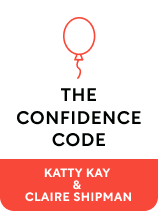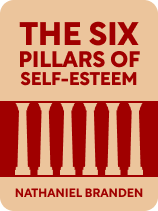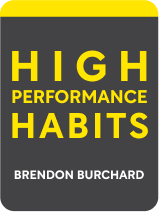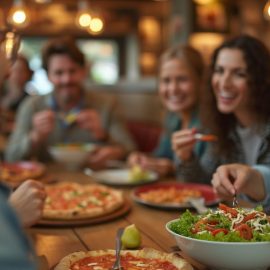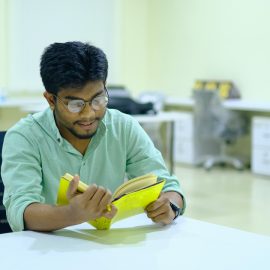

This article gives you a glimpse of what you can learn with Shortform. Shortform has the world’s best guides to 1000+ nonfiction books, plus other resources to help you accelerate your learning.
Want to learn faster and get smarter? Sign up for a free trial here .
Is confidence a skill or something you’re born with? To what extent is confidence a matter of nurture as opposed to nature?
Confidence helps you take bold steps in the face of obstacles or adversity because it reminds you that you have the strength to overcome and succeed. Some claim that confidence is a skill that can be developed through practice. Others say that confidence, akin to IQ, is determined by genetics.
Here’s what science has to say on the matter.
Confidence: Nature Versus Nurture
Is confidence a skill or a genetic endowment? Psychological research points out that confidence is genetic to some extent. Behavioral geneticist Robert Plomin studied identical twins and fraternal twins and found that identical twins had more similar answers than fraternal twins on both self-assessments of their ability and their actual ability. He found that the correlation between confidence and genes could be as high as 50%, which might be even higher than the correlation between IQ and genes.
While up to 50% of confidence might be down to genetics, that doesn’t mean that confidence is a fixed trait. Certain genes related to character traits can turn on and off, thus changing our brain chemistry—and our confidence levels. Epigenetics is the study of how life experiences can change our genes and DNA. For example, identical twins often have the same DNA but have different personalities.
Interestingly, gene off-ons might be inheritable even after only a single generation. Scientists don’t know yet if people who work on their confidence can pass this on to their children, but it could be possible. For example, some studies found that pregnant women who witnessed the Twin Towers attacks passed stress hormones to their babies.
Sensitivity Genes
To further understand the role of genetics in confidence, consider sensitivity genes. Sensitivity genes are genes that make someone more sensitive—not more vulnerable—to their environment. This means that they’re more likely to absorb whatever influences they’re surrounded by, whether positive or negative.
For example, rhesus monkeys that had confidence-facilitating genes grew up to be non-anxious adults regardless of what kind of mother they had. Monkeys with social anxiety genes grew up to be anxious adults when they had anxious mothers and grew up to be somewhat anxious when they had average mothers. But when they had great mothers, they grew up to be more confident and healthy than the monkeys with confidence-facilitating genes.
Sensitivity is highest in early childhood and psychologist Suomi thinks it may also be high in other key periods like menopause, labor, and puberty.
The Confidence Code
by Katty Kay and Claire Shipman
29 min reading time
88.2k reads
audio version available
How Culture Influences Confidence
Apart from genetics, your level of confidence is also influenced by the culture where you grew up. Your culture instills particular beliefs that affect how you view the world, thus impacting your confidence and self-esteem. Individuals often aren’t aware of these cultural beliefs—but even when they are, it’s impossible to avoid the influence of these beliefs.
As an example, consider the traditional Western belief regarding gender roles: Women were historically deemed subservient to men. The ways in which this belief manifests in modern society continue to damage women’s confidence—even the ones who don’t consider themselves subservient to men in any way. For instance, in schools, girls are encouraged to be well-behaved, which discourages confidence-building behavior.
The Six Pillars of Self-Esteem
by Nathaniel Branden
66 min reading time
67.2k reads
audio version available
The 3 C’s of Confidence
While you can’t influence your genetics or the culture you’re born into, that doesn’t mean that you are doomed to be under-confident. With patience, hard work, and persistence, you can develop confidence.
In his book High Performance Habits, personal development trainer Brendon Burchard says that confidence is a skill that encompasses competence, congruence, and connection:
- Competence: To develop competence, take the time to master important skills. The more you know about a topic, the more confident you can be in your abilities. For example, if you’re a baseball player, and you’ve spent a lot of time practicing and perfecting your swing, you’re going to be more confident when you get to the plate.
- Congruence: Confident people have a clear self-image and act in accordance with their values. To develop congruence, have a strong sense of identity, define your values, and set your intentions. Once you know those things, you won’t second guess any choices that align with them. For example, if you know you’re passionate about saving the environment, you’ll be confident in your efforts to become more eco-friendly.
- Connection: Confident people use their relationships to build their competence and congruence. They use interactions with their family, friends, and colleagues to learn more about themselves and their work. To develop connection, engage with the people around you and seek out opportunities for education and development. For example, if you’re a manager, taking the time to understand the dreams, fears, and concerns of your employees will give you more confidence to enact positive change.
Confidence Is a Sense of Certainty in Your Abilities
According to Brené Brown, confidence is not as much a skill as our sense of certainty in our skills. Brown wants us to work toward a particular form of confidence that she calls grounded confidence: a powerful sense of self that comes from accurate analysis of what we’ve done and what we can do. For example, an accomplished performer might still feel stage fright, but she can draw confidence from the knowledge that she’s experienced and skilled, and that audiences love her shows.
Brown adds that defensiveness comes from a lack of grounded confidence—we feel the need to protect ourselves from anything that might disrupt our self-image or sense of self-worth, so we immediately turn to justifications and excuses for any negative traits we have and any mistakes we make.
On the other hand, humility is grounded confidence combined with a willingness to learn and improve. While it’s often considered to be the opposite of confidence, Brown says that humility is actually a function of confidence—we have to be secure enough in ourselves to recognize when we might be wrong and when we have room to grow. Brown sums up humility by quoting another of her books, Dare to Lead: “I’m here to get it right, not to be right.”
Finally, the near enemy of confidence is hubris, which is an overblown sense of our own capabilities that’s not tied to any actual achievements. Counterintuitively, Brown believes that hubris is actually a function of low self-esteem. Much like defensiveness, people who lack confidence feel the need to build themselves up and defend themselves from any negative attention—even (or perhaps especially) negative attention from themselves.
Final Words
Is confidence a skill or a gift endowed by genetics? As far as psychological research goes, confidence is both—our biology and our environment affect it and neither will win out.
If you enjoyed reading about if confidence a skill, check out the following suggestions for further reading:
In The Confidence Gap, psychotherapist Russ Harris provides an approach to dealing effectively with the negative, limiting thoughts and fears that prevent you from achieving your goals. Rather than trying to speak to, tamp down, or ignore negative thoughts—all ineffective methods—Harris recommends you relate differently to your thoughts. This will allow you to pursue your goals without your thoughts interfering with your efforts.
You have powerful beliefs that affect what you want in life and whether you get it. In Mindset, psychologist and researcher Carol S. Dweck argues that the way you think determines the course of your life, starting as early as your preschool years.
You learn one of two mindsets from your parents, teachers, and coaches: that personal qualities such as intelligence and ability are innate and unchangeable (the fixed mindset) or that you and others can change and grow (the growth mindset). Understanding and adjusting your mindset can change your career, relationships, the way you raise your children, and your overall life satisfaction.

Want to fast-track your learning? With Shortform, you’ll gain insights you won't find anywhere else .
Here's what you’ll get when you sign up for Shortform :
- Complicated ideas explained in simple and concise ways
- Smart analysis that connects what you’re reading to other key concepts
- Writing with zero fluff because we know how important your time is

